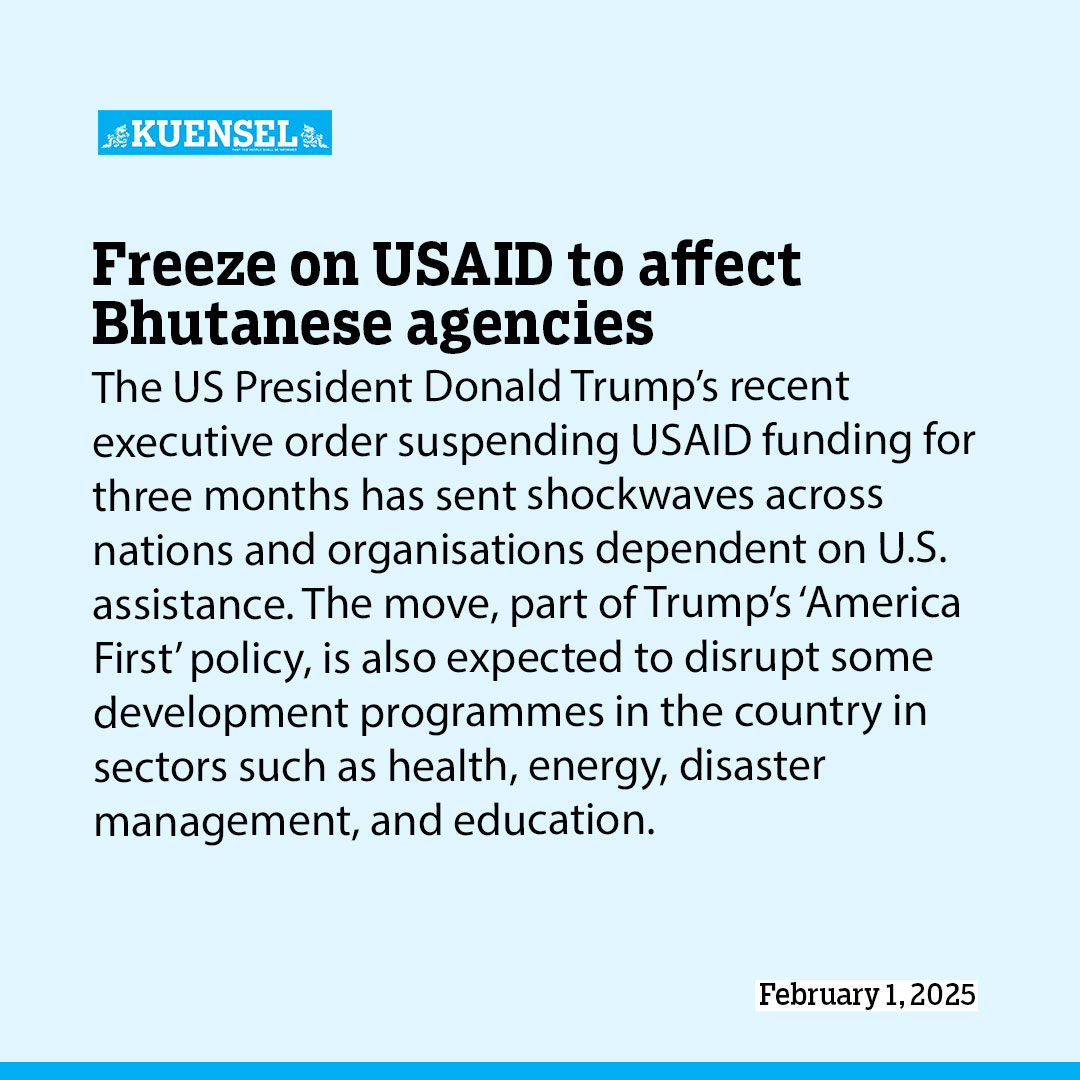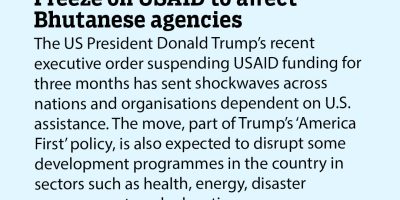Dorji Choden
The US President Donald Trump’s recent executive order suspending USAID funding for three months has sent shockwaves across nations and organisations dependent on U.S. assistance.
The move, part of Trump’s ‘America First’ policy, is also expected to disrupt some development programmes in the country in sectors such as health, energy, disaster management, and education.
The US government has been supporting Bhutan through USAID since 1980, in areas of capacity building, infrastructure development, and cross-border cooperation.
According to USAID, Bhutanese professionals participate in U.S. sponsored programmes such as the International Visitors Leadership Programme, Humphrey Fellowships, and Fulbright Scholarships.
In the energy sector, Bhutan is part of the South Asia Regional Initiative for Energy Integration and South Asia Regional Energy Partnership—both USAID-funded programmes aimed at improving cross-border electricity trade and clean energy access, and enhanced market practices.
Bhutan also benefits from USAID-led disaster management training and health initiatives. Through USAID’s Global Health Bureau, Bhutan has received support for Iodine nutrition programmes and COVAX-backed COVID-19 vaccines.
Since July 2021, the US.has donated over 600,000 vaccine doses to Bhutan, alongside economic assistance to mitigate the pandemic’s impact, including support for farmers and food security initiatives.
Bhutan receives assistance from the US State Department to implement programmes addressing human trafficking and advancing STEM education.
In collaboration with NASA, Bhutanese teachers have been trained under the Global Learning and Observation to Benefit the Environment project, which enhances data collection and Earth science education.
Bhutanese officials and military officers have also participated in security studies at the Asia-Pacific Center for Security Studies.
Bhutan Foundation also secures grant funding from USAID as one of their international partners.
The USAID awarded six research grants worth USD 500,000 or Nu 37 million to foster partnerships in scientific cooperation between Bhutan and the United States on topics including public health, food security, and climate change in 2022. In 2020, Bhutan received USD 825,517 (Nu 71.44 million) in USAID funding for basic health initiatives.
The freezing of USAID has disproportionately affected aid-dependent countries. In Nepal, four USAID-funded projects in health, agriculture, education, and policy development have been temporarily suspended.
According to the United Nations Office for the Coordination of Humanitarian Affairs, the US is the highest contributor to global humanitarian aid, supplying 42 percent of global aid, which is estimated at USD 13.93 billion in 2024.
In 2023, the US was the largest single donor of aid globally, providing USD 72 billion in assistance, including USD 63.7 billion in economic aid and USD 8.3 billion in military aid.
The top three receivers of US foreign aid in 2023 were Ukraine, Israel and Ethiopia.

















